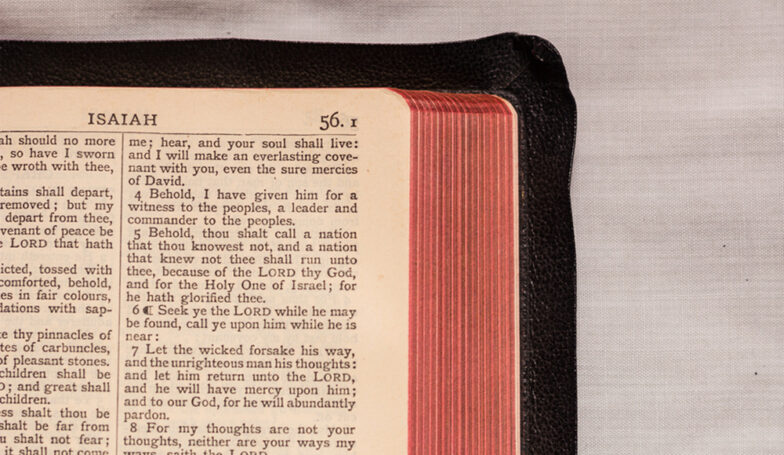In Apologetics Encounters, Be Winsome or Lose Some
As a Christian thinker and apologist, I have talked with many non-Christians about my Christian faith over almost the past four decades. Some of these apologetics discussions have taken place in formal debates, others on television and radio, still others on social media, and many in personal face-to-face discussions. Sometimes I reflect back on these discussions and wonder how successful they were.
In my opinion, defending the faith (Greek: apologia: to offer a reasoned defense) is never easy, and one must trust in God’s grace for the results. Ultimately, I believe that only God by his extraordinary grace can instill a desire for himself in a human being, but the Lord may choose to use your witness or mine in doing so.
Here are three goals I have in mind when engaging in the apologetics enterprise:
First, I try to present clear, cogent, and compelling arguments for my faith. Whether presenting arguments for God’s existence, a defense of the Christian worldview, or an explanation of Christian truth claims like the Trinity or Jesus’s incarnation, atonement, or resurrection, I try to convey what I believe as a historic Christian and why I think Christianity is true and good.
Second, I attempt to demonstrate an intellectual code of conduct by striving to treat other people and their beliefs the way I want mine treated. That means I try to engage with other people’s beliefs and arguments with respect and fair-mindedness. I call this the golden rule of apologetics.
Third, I look to build bridges with others when I can do so without compromising my beliefs and values. Because all people are made in God’s image and everyone benefits from general revelation and common grace, I think there will be important places where I can find common ground with others who don’t share my faith.
A Winsome Approach
Of course, I’m not always able to accomplish these three lofty goals. At times, my apologetics efforts have been weak, argumentative, and excessively confrontational.
Nevertheless, I try to be winsome in all of my apologetics encounters. By winsome, I mean considerate, gracious, and personable. Winsomeness doesn’t guarantee that the person you are engaging with will be open to the gospel message. But I think the complete absence of winsomeness will very likely turn people off to the gospel.
However, some people have told me that a winsome approach to apologetics is just weak or soft. Some time ago on social media, I had two people challenge whether being winsome is always the right way to do apologetics.
As readers of my blog, I think you might appreciate reading the challenges and how I responded. Here they are, paraphrased.
Respondent #1: The apostle Paul wasn’t winsome in Galatians 1:8–9 when he spoke of purveyors of false gospels being accursed. Nor in Acts 13:10 when he said, “You are a child of the devil and an enemy of everything that is right! You are full of all kinds of deceit . . .”
My Response: Greetings in the name of the Father, and of the Son, and of the Holy Spirit. Thanks for your thoughts.
I’ll try to explain how the passages you’ve cited relate to the critical Christian virtues mentioned in Romans 12 and other places in the apostle Paul’s epistles.
Your biblical references relate to the very serious and somewhat extreme circumstances of false teaching (Galatians 1) and sorcery (Acts 13). Yet according to Scripture the preaching of the gospel and the apologetics enterprise is to be done with gentleness, respect, and a clear conscience (1 Peter 3:15–17). I have frequently shared with Jehovah’s Witnesses that the Watch Tower’s gospel is unbiblical and thus false, yet I treated the individual persons who stood at my front door with respect and kindness. Even people preaching another gospel or engaged in spiritual deceit are persons made in the image of God (Genesis 1:26–28) and are therefore still worthy of dignified treatment.
Paul’s confrontation with the sorcerer was unique in two respects. Paul was an apostle and was given unique discernment from the Holy Spirit (Acts 13:9). There are things that Jesus and the apostles did that were unique to them and their special supernatural ministry. You and I cannot read the hearts and minds of people as they could, and thus we must strive to be gracious and humble in our discernment and treatment of others.
Anything done without love, including doctrinal and moral correction, is empty (1 Corinthians 13:1–3). Facing false teaching and even occult activity doesn’t give the Christian the right to dishonor people and treat them disrespectfully. Christian love is a powerful apologetics force in its own right, and it is not inconsistent with the need to be strong and firm in opposing error and evil.
Respondent #2: Isn’t winsomeness defined culturally? For example, in Middle Eastern cultures, a certain amount of disparaging your opponent, “in-your-face” confrontational talk, using sarcasm, almost sounding insulting, is necessary to be viewed as making any serious point and being worth listening to. A soft-spoken person is viewed as weak and not a serious interlocutor who is passionate enough to appear adversarial.
I am not endorsing this style, but merely pointing out that “winsome” may be a Western construct. Western standards of politeness or respectfulness or gentleness may be defined differently in other cultures. Of course, Scripture is our ultimate arbiter and source for faith and practice.
My Response: Thanks for your thoughtful comments.
I think being winsome as I have defined it (considerate, gracious, and personable) in apologetics encounters is the general equivalent of the Scriptural imperative (1 Peter 3:15–17) of exhibiting “gentleness,” “respect,” and a “clear conscience.” While I know you are not personally condoning it, “in-your-face” smack talk, using sarcasm (which metaphorically means to “cut the flesh”), and intimidation is insulting, unbiblical, and apologetically unpersuasive.
All people are made in the image of God and are deserving of respect and dignified treatment. Scripture warns against insulting people who bear God’s image (James 3:9). Winsomeness is not soft or weak. It takes much more strength and character to treat people with whom you disagree with genuine respect. Anything in the Christian life not done in love is empty (1 Corinthians 13).
The specifics of winsomeness may indeed be informed by one’s culture, but the apostles Peter and Paul were both Middle Eastern, and they advocated that apologetics be accompanied by respect, gentleness, and a clear conscience.
Consider Paul’s words in 1 Corinthians 13:4–8:
“Love is patient, love is kind. It does not envy, it does not boast, it is not proud. It does not dishonor others, it is not self-seeking, it is not easily angered, it keeps no record of wrongs. Love does not delight in evil but rejoices with the truth. It always protects, always trusts, always hopes, always perseveres. Love never fails.”
There are differences in cultural practices, but Scripture, which we both affirm as our authoritative standard, has a universal application. Today’s multiculturalism has to be evaluated carefully in light of logic and Scripture lest it collapse into cultural and ethical relativism. An honor-shame culture—like any culture, including Western—may need to be reformed in light of true scriptural values.
Peace be with you.
Takeaway
Winsomeness is not tantamount to softness or weakness. It takes real strength to retain virtue when the discussion becomes highly polemical and even adversarial. None of our apologetics endeavors are perfect, but we can have confidence that God, by his grace, can use his broken vessels (us) to reach the world for Christ.
Reflections: Your Turn
What questions or comments came to your mind when you read my article? Visit Reflections to comment.
Resources
To read about apologetics issues and accompanying virtue, see my book Without a Doubt: Answering the 20 Toughest Faith Questions.






